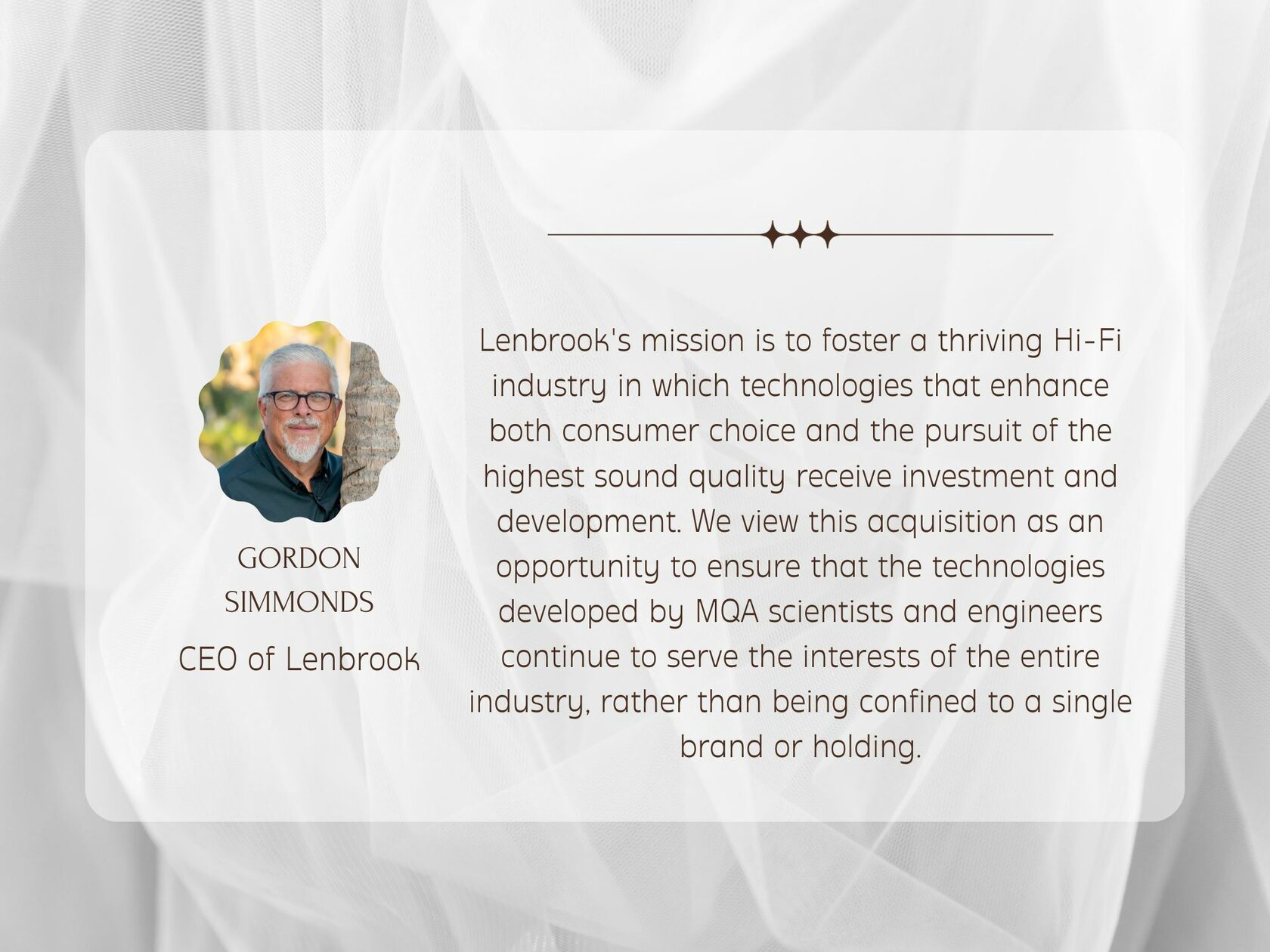The Canadian company Lenbrook has acquired MQA.
MQA, a British audio technology firm founded by Bob Stuart, now has a new owner in the form of Lenbrook Holdings, which includes a range of well-regarded brands such as Bluesound, NAD, and PSB Speakers.
MQA, a British audio technology firm founded by Bob Stuart, now has a new owner in the form of Lenbrook Holdings, which includes a range of well-regarded brands such as Bluesound, NAD, and PSB Speakers.
While the financial details remain undisclosed, company representatives have confirmed the acquisition of all MQA assets, including two critical intellectual properties, namely MQA audio codecs and SCL-6. It's worth noting that MQA was facing a challenging situation after a significant investor withdrew from the project.

MQA is considered analogous to high-resolution audio codecs like FLAC, but it offers much smaller file sizes and the ability to visually confirm that the composition being listened to matches the "verified" version by the artist.
However, unlike the open and royalty-free FLAC format, MQA is proprietary, which means that any organization, be it a streaming service, record label, or audio equipment manufacturer, interested in using MQA must pay a licensing fee.

Many record labels and audio equipment manufacturers have embraced MQA over the years. We have worked with streaming platforms like Cary Audio (DMS series and AiOS), as well as Chord DACs (from the portable Mojo 2 to the superb DAVE) and more.
Regarding streaming, Tidal remains the sole major streaming music service that has ever offered tracks in the MQA format to its subscribers. In 2023, Tidal is actively making significant changes that will eventually shift its entire high-resolution music library to the FLAC format. In practical terms, without Tidal's support, accessing music created in the MQA format could become quite challenging.
How will the company change?
Lenbrook has indicated that the core group of MQA engineers, developers, and marketing team members will be retained. Reports also suggest that Bob Stuart, the founder of MQA, will not join the new Lenbrook team but will remain involved in the project as an advisor for MQA/SCL-6 product development.

So, what about streaming services?
Analysts speculate that one of Lenbrook's initial tasks will be to address the Tidal situation. This may entail Tidal retaining its MQA catalog at a reduced licensing cost. If negotiations with Tidal hit a roadblock, Lenbrook may attempt to forge a partnership between MQA and one of Tidal's competitors. Apple Music, Amazon Music, and Qobuz already offer high-resolution libraries in FLAC or ALAC formats, making them unlikely partners.
As for another market behemoth, Spotify, the platform has shown interest in Hi-Res audio for several years. The deal with Lenbrook may finally expedite this process. It's puzzling why Spotify hasn't reached the Hi-Fi level yet. Licensing MQA would enable Spotify to introduce this new level without merely emulating Apple Music and other services.
